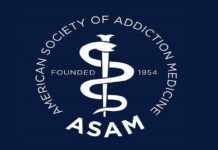bupropion use, whereas oral use was more frequent with amitriptyline and venlafaxine. Perhaps the popular way to take the drugs is a reason why it is more widely discouraged — people dissociate taking a drug orally from using drugs in other ways. Bupropion and venlafaxine were mostly procured from health care clinicians, while amitriptyline was obtained illegally.
The study concluded that infoveillance, in conjunction with harm-reduction web forums, offered an important source of data that could be applied in overseeing the non-medical use of antidepressants.
With new data available, one would presume that new knowledge may arise to combat prescription addictions and prevent dependence on both legal and illicit drugs.
The practice is limited, though. Experts admitted that it is an “incomplete picture” of how a person responds to a particular brand, company and in this case, drugs.
Much of the gap is seen between those who actively post on social media and those who “lurk.” Analyzing the habits of a spectator to a particular message from a person they know on social media was limited to consumerism and pharmaceuticals — especially when taken non-medically — and were not a solid subject for this data, though these types of studies can provide helpful information about legal drugs that are either bought or consumed legally or illegally.
Nevertheless, data showed that nearly 90 percent of customers trust peer recommendations for products online, and “71 percent of consumers would make a purchase after social media referrals.” But it is inconclusive how far this goes to provide conclusive data for taking prescription drugs for nonmedical reasons.
It’s also possible to monitor alcohol and e-cigarettes since they are both legal and branded consumer products. A recent infoveillance study on e-cigarette sentiments on Twitter found that 71 percent of posts were positive about the product. To fight addiction, social listening can promote campaigns that understand the data and work against alcoholism and other types of addiction. Although there is still more research to be done, social listening infoveillance has the possibility of becoming a reputable source for addiction studies and research for facilitating treatment.















